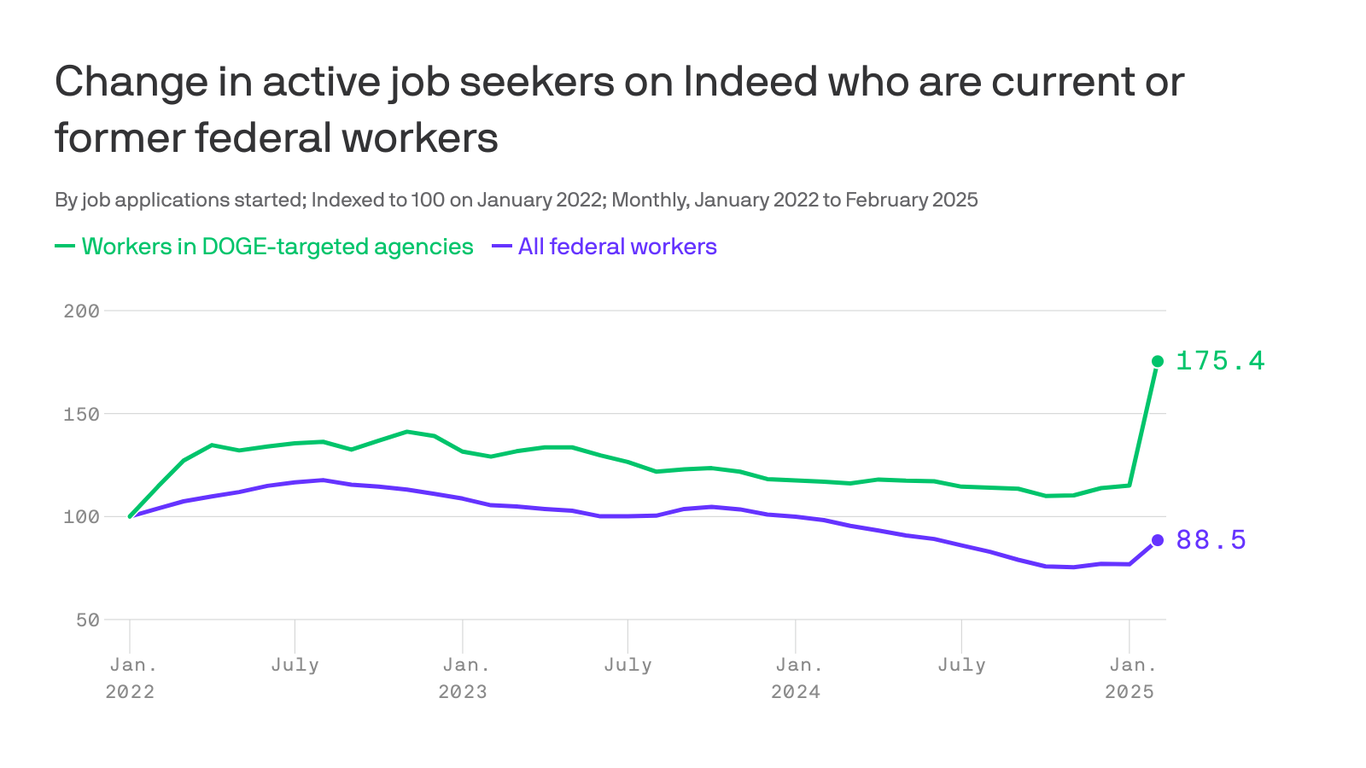
The Great Resignation Isn’t Over: A New Wave of Federal Workers Seeking Change
The job market is a curious beast, constantly shifting and surprising even the most seasoned observers. While headlines often focus on broader trends, a fascinating microcosm is unfolding within the federal government, specifically impacting agencies targeted for budget cuts under the proposed “DOGE” initiative (we’ll avoid the explicit acronym for brevity’s sake, as the name itself is distracting from the larger issue). What we’re seeing is a significant surge in job applications originating from highly educated employees within these agencies. This isn’t just a trickle; it’s a wave.
This wave isn’t entirely surprising, given the current economic climate. While the overall job market fluctuates, a specific sector—that of advanced degree holders—has experienced a slowdown in hiring. This stagnation, coupled with the uncertainty surrounding the proposed DOGE cuts, creates a potent cocktail pushing these highly skilled individuals to explore opportunities elsewhere. We’re talking about individuals who have invested years in education and training, often specializing in niche fields vital to government operations. They are not simply quitting their jobs; they are actively seeking new and promising career paths.
The implications of this exodus are far-reaching. These agencies, already facing potential budget constraints, are now confronting the loss of institutional knowledge and expertise. Years of experience, carefully cultivated skills, and deep understanding of complex government processes are at risk of walking out the door. Replacing this level of expertise is not a simple matter of posting job openings. It’s a long, costly, and potentially ineffective process.
Furthermore, this situation highlights a broader dissatisfaction amongst highly educated professionals within the public sector. While public service often attracts individuals driven by a desire to contribute to society, the current climate seems to be eroding their morale and commitment. The uncertainty brought about by potential funding cuts, combined with a general slowing in hiring for their skill sets, creates a sense of insecurity and diminished job satisfaction. The “DOGE” initiative, regardless of its merits, has become a symbol of this larger malaise, accelerating an already existing trend.
The surge in job applications also underscores a subtle shift in the power dynamic between employer and employee. Highly skilled workers are no longer passively waiting for opportunities to arise. They are actively seeking them, empowered by their skills and experience to demand better working conditions, higher compensation, and greater job security. This proactive approach signifies a potential recalibration of the employment landscape, where talent drives the market rather than solely relying on employer demand.
The future remains uncertain, both for the agencies facing these potential cuts and for the highly qualified individuals leaving them. However, this situation serves as a potent reminder that employees are not simply cogs in a machine. Their skills, knowledge, and commitment are invaluable assets, and their decisions reflect a complex interplay of personal ambitions, economic realities, and a profound sense of professional fulfillment. The implications of this mass exodus extend far beyond the immediate impact on specific agencies, prompting a wider conversation about the value of experienced professionals within the public sector and the crucial need for a more secure and supportive work environment.



Leave a Reply